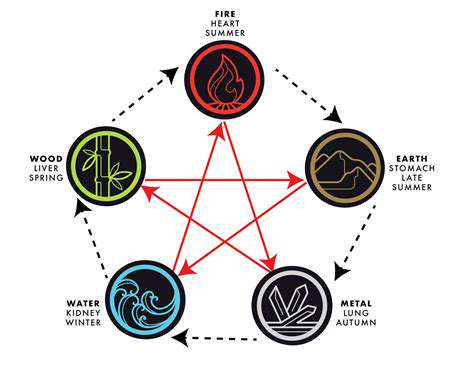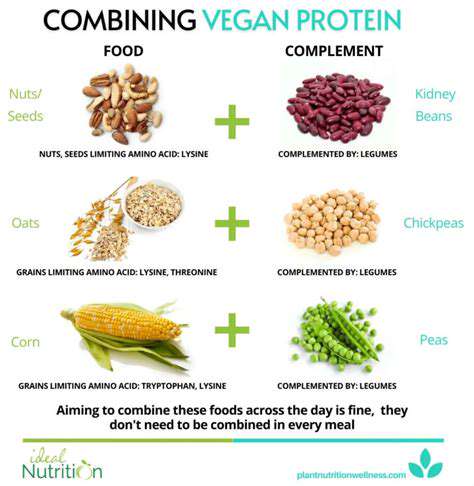The Role of Whole Grains in Preventing Disease

The Importance of Dietary Fiber
Dietary fiber, an essential component of a healthy diet, plays a crucial role in promoting digestive health and overall well-being. It's a type of carbohydrate that the body can't digest, meaning it passes through the digestive system relatively intact. This unique characteristic allows fiber to provide numerous benefits, from regulating bowel movements to improving blood sugar control.
Fiber is classified into two main types: soluble and insoluble. Soluble fiber dissolves in water, forming a gel-like substance that can help lower cholesterol levels and regulate blood sugar. Insoluble fiber, on the other hand, adds bulk to the stool, promoting regular bowel movements and preventing constipation.
Benefits for Digestive Health
A diet rich in fiber is vital for maintaining a healthy digestive system. Fiber adds bulk to the stool, making it easier to pass and preventing constipation. This regularity can significantly improve overall digestive health and reduce the risk of conditions like diverticulitis and hemorrhoids.
Regular bowel movements are crucial for removing waste products from the body. A diet lacking in fiber can lead to sluggish digestion, discomfort, and potentially more serious health issues. Adequate fiber intake helps maintain a healthy gut microbiome, further contributing to digestive well-being.
Furthermore, fiber helps feed the beneficial bacteria in your gut, which are essential for a healthy digestive system. These bacteria produce important vitamins and contribute to overall gut health.
The Role of Fiber in Blood Sugar Control
Consuming a sufficient amount of fiber can greatly improve blood sugar control, particularly for individuals with diabetes or those at risk of developing the condition. Soluble fiber slows down the absorption of sugar into the bloodstream, preventing blood sugar spikes after meals.
This gradual release of sugar helps to maintain stable blood sugar levels, reducing the risk of fluctuations that can lead to energy crashes and other complications. Incorporating fiber-rich foods into your diet can help regulate blood sugar and improve overall metabolic health.
Fiber-Rich Foods and Recommendations
Many delicious and readily available foods are excellent sources of fiber. Fruits like berries, apples, and bananas are packed with fiber, as are vegetables like broccoli, carrots, and sweet potatoes.
Whole grains like oats, brown rice, and quinoa are also excellent sources of fiber. Legumes, such as beans and lentils, are incredibly nutritious and high in both soluble and insoluble fiber. Including a variety of these foods in your diet can easily increase your fiber intake.
To ensure you're getting enough fiber, aim for a variety of fruits, vegetables, whole grains, and legumes in your daily meals. Gradually increasing your fiber intake is recommended to avoid digestive discomfort. Consulting with a healthcare professional or registered dietitian can help you determine the right amount of fiber for your specific needs and health conditions.
Whole Grains and Heart Health: Protecting Your Cardiovascular System

Whole Grains and Reduced Risk of Cardiovascular Disease
Whole grains, rich in fiber, vitamins, and minerals, play a crucial role in maintaining heart health. Studies consistently demonstrate a strong correlation between whole grain consumption and a lower risk of developing cardiovascular diseases. This positive impact is largely attributed to the fiber content, which helps regulate blood sugar levels and cholesterol. Fiber also promotes satiety, which can contribute to healthy weight management, another key factor in preventing heart disease.
The soluble fiber in whole grains helps lower LDL (bad) cholesterol levels, reducing the risk of plaque buildup in the arteries. This, in turn, helps maintain healthy blood pressure and improves overall cardiovascular function. The presence of essential nutrients like magnesium and potassium further supports a healthy heart by aiding in blood pressure regulation.
The Importance of Fiber in Whole Grains
Fiber, a complex carbohydrate, is a significant component of whole grains and is essential for digestive health and cardiovascular well-being. Fiber's ability to regulate blood sugar and lower cholesterol levels makes it a cornerstone of heart-healthy diets. It promotes a feeling of fullness, which can help manage appetite and prevent overeating, thus supporting weight management, a critical factor in preventing heart disease.
The various types of fiber found in whole grains contribute to different health benefits. Insoluble fiber adds bulk to the stool, aiding in digestion and preventing constipation. This regularity is vital for overall health and well-being.
Whole Grains and Blood Sugar Control
Maintaining stable blood sugar levels is paramount for heart health. Whole grains, with their low glycemic index, help prevent rapid spikes in blood sugar after meals. This gradual release of glucose into the bloodstream minimizes the strain on the pancreas and improves insulin sensitivity.
Consistent consumption of whole grains can contribute to improved blood sugar management and a reduced risk of developing type 2 diabetes, a major risk factor for heart disease. The presence of various vitamins and minerals further supports overall metabolic function.
Whole Grains and Cholesterol Management
The soluble fiber in whole grains is particularly effective at binding to cholesterol in the digestive tract, preventing its absorption into the bloodstream. This process significantly reduces LDL (bad) cholesterol levels, a key factor in reducing the risk of atherosclerosis, a condition characterized by plaque buildup in the arteries.
Reducing LDL cholesterol is crucial for maintaining healthy blood vessels and preventing heart attacks and strokes. This positive impact on cholesterol levels, coupled with improved blood sugar control, makes whole grains a powerful ally in the fight against cardiovascular disease.
Whole Grains and Blood Pressure Regulation
Maintaining healthy blood pressure is essential for preventing heart disease. Whole grains, rich in potassium and magnesium, play a vital role in regulating blood pressure. Potassium acts as a vasodilator, widening blood vessels and improving blood flow.
Magnesium also contributes to blood pressure regulation by promoting relaxation of blood vessels. The combined effect of these minerals in whole grains helps maintain healthy blood pressure levels and reduces the risk of hypertension, a major risk factor for heart disease.
Whole Grains and Weight Management
Weight management is a crucial component of a heart-healthy lifestyle. Whole grains, due to their high fiber content, promote satiety, which helps reduce overall calorie intake and aid in weight management. The feeling of fullness after consuming whole grains can help individuals consume fewer calories, thus contributing to weight loss or maintaining a healthy weight.
The combination of fiber, complex carbohydrates, and essential nutrients found in whole grains contributes to a healthy and balanced diet, supporting long-term weight management. This aspect is particularly important for individuals at risk of or already diagnosed with heart disease, as excess weight places additional strain on the cardiovascular system.
Variety in Whole Grains for Optimal Health
A diverse intake of whole grains, including brown rice, quinoa, oats, barley, and whole wheat, offers a range of nutrients and health benefits. Each type of whole grain possesses unique nutritional profiles, contributing to a comprehensive approach to cardiovascular health.
Consuming a variety of whole grains ensures a wider spectrum of vitamins, minerals, and antioxidants, promoting overall well-being beyond just heart health. This variety also adds interest and helps ensure consistent intake of these beneficial foods.












